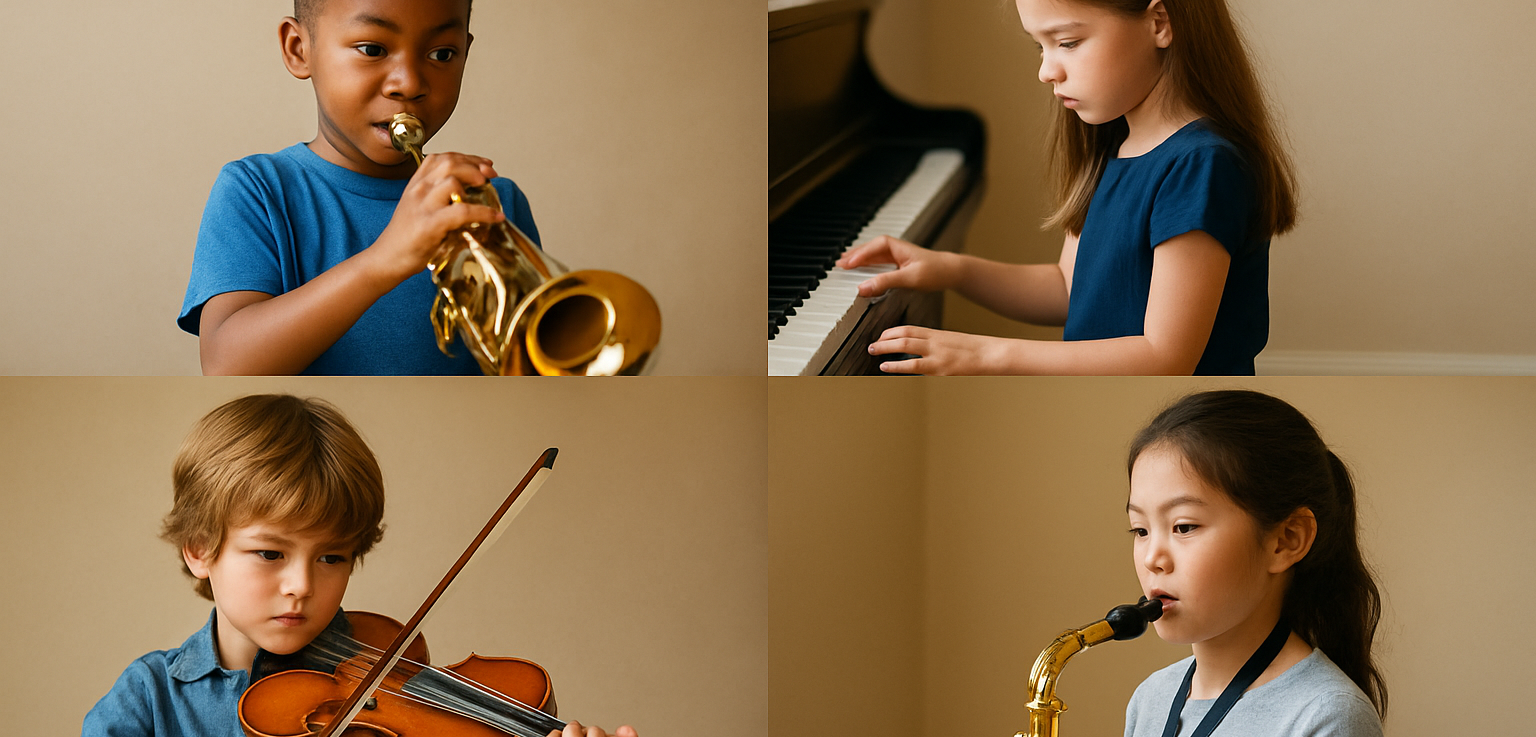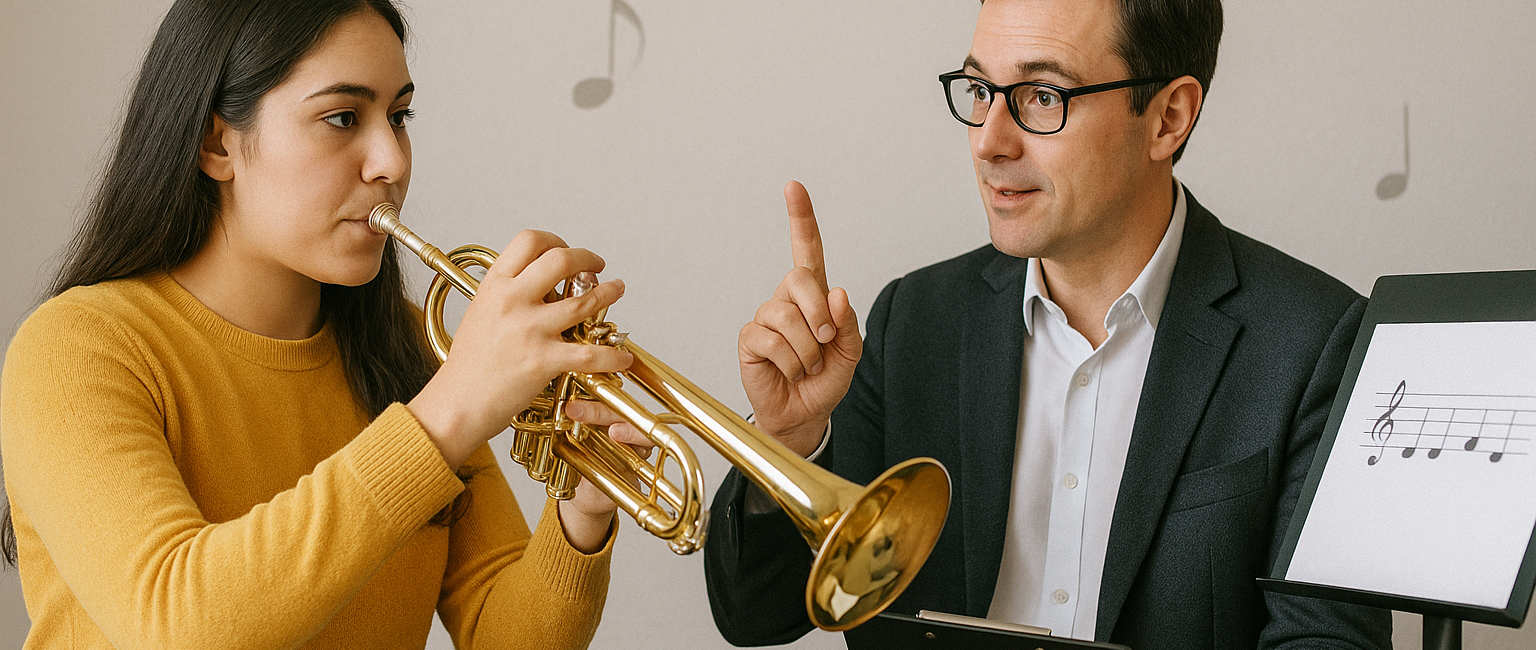Learning a musical instrument is like offering your child’s brain a workout. Research shows that kids who venture into music lessons often see incredible advancements in brain development. Engaging with music boosts neural connectivity, helping the brain to form and strengthen connections across different areas. This means that your child isn’t just learning to play an instrument, but they’re building a more robust and adaptable mind.
Memory and attention skills also get a significant lift through music education. Think of it this way: nailing a musical piece requires practice, focus, and recall. Children who practice music tend to develop stronger memory capabilities and an increased attention span, which can lead to better performance in academic settings. It’s like giving them a secret weapon in their educational arsenal.
Music and language skills are close buddies, too. Studies indicate that kids involved in music tend to excel in reading and language tasks. They’re learning to interpret musical notes, rhythms, and lyrics, which translates into superior language acquisition abilities. It’s a two-pronged hook: music helps them become better readers and communicators.
Lastly, creativity and critical thinking get a major boost when kids learn music. Music is inherently creative – composing, improvising, and interpreting all demand innovative thinking. This kind of environment encourages kids to think outside the box, fostering creativity and critical thinking that can be beneficial throughout their lives.
Emotional and Social Growth Through Music
Music isn’t just a sonic treat; it’s a powerhouse for emotional and social development, especially in kids. Picking up an instrument can be a massive confidence booster. Successfully learning a new piece offers a sense of accomplishment that resonates beyond those group music lessons.
Empathy and emotional intelligence seem to blossom in young musicians. Music lets kids explore a vast array of emotions in a safe environment. They begin to understand and mirror those emotions, honing empathy and emotional awareness. It’s truly fascinating how engaging with melodies and rhythms can boost emotional intelligence.
Playing in a band or orchestra? It’s more than just making sweet music—it’s about teamwork and collaboration. Kids learn important lessons in communication and compromise as they work in sync with others. Plus, it’s a great way to bond and make new friends, sharing both challenges and victories.

Let’s not ignore the therapeutic side of music. Expressing emotions through music can be cathartic, helping kids reduce stress and manage anxieties. Whether they’re strumming a guitar or banging out rhythm on drums, it gives them a healthy outlet for emotions, balancing their mental state which is super important as they grow.
Building Essential Life Skills via Musical Training
Musical training isn’t just about hitting the right notes; it’s a crash course in valuable life skills. Perseverance is the name of the game with learning an instrument. Kids grasp pretty early that getting a melody just right takes doing and redoing. That can-do attitude can cross over to school and other life challenges, too.
Time management turns into a superpower for young musicians. Between practice sessions, schoolwork, and playtime, they learn to juggle and prioritize. Setting short-term and long-term goals is a routine part of this musical journey. Hitting targets like mastering a tricky passage or acing a performance amps up their goal-setting prowess.
There’s also a huge boost in problem-solving abilities. When a child encounters tricky sections in their music, they’re not just sitting there confused. They’re breaking the problem down, trying new approaches, and adapting. Playing an instrument makes kids into little creative problem solvers, ready to tackle whatever hurdles life throws at them.
Musicians often bounce back from mistakes, whether it’s a missed note or a tempo slip-up. Praise-worthy resilience comes from persisting despite setbacks and discovering the joy of achieving growth. Fostering this kind of resilient mindset can make a massive difference throughout their lives.
The Inspirational and Cultural Dimensions of Music
Getting into music opens up a whole world of cultural exploration and inspiration for kids. Each note they play can be a link to different cultures and histories. Learning about the origins of an instrument or a music piece is like a globe-trotting adventure without leaving home. It shows kids that the world is beautifully diverse and interconnected.
Music speaks a universal tongue. No matter where we come from, a melody can connect people across the globe. For a child, realizing that their tunes can resonate anywhere is incredibly empowering. It’s like having a magical key to global friendships and understanding.
Exploring different genres is like picking from a musical buffet. It allows kids to discover what speaks to them personally, broadening their horizons beyond the usual top 40 hits. From classical symphonies to vibrant jazz rhythms, each genre opens a new door to creativity and inspiration.
Finding mentors in the music world shows kids what’s possible. Whether they’re inspired by iconic musicians or local teachers, seeing others succeed in the field can spark dreams and aspirations. Encouraging them to emulate their musical heroes can lead to amazing personal growth and creativity.





